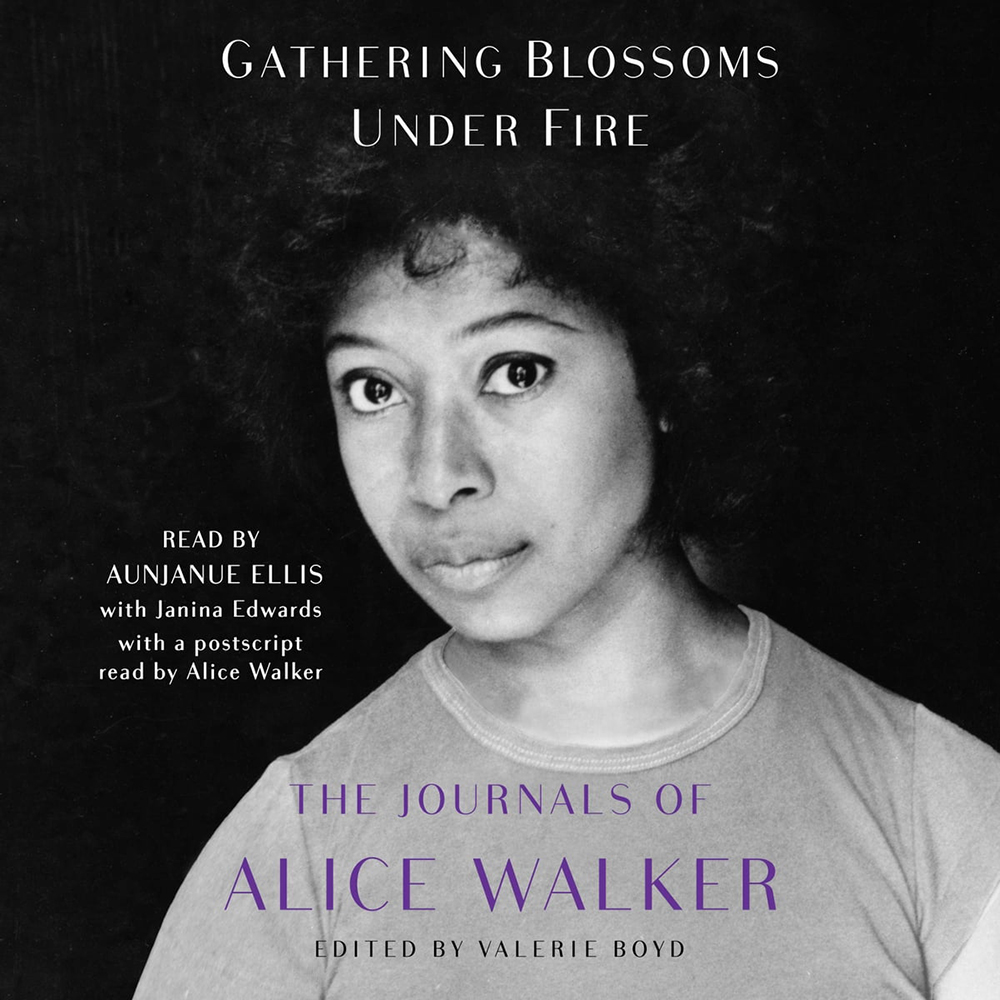Audiobook listeners never have to live a single moment without the joy of stories. No errand, no chore, no leisurely stroll is complete without a book. These are the 14 audiobooks that we’re most excited to check out this fall.

Starry Messenger by Neil deGrasse Tyson, read by the author
Macmillan Audio | September 20
Neil deGrasse Tyson, everyone’s favorite astrophysicist, reads his own “Cosmic Perspectives on Civilization.” Imagine star-gazing while listening to this one—yes, please.
The Door of No Return by Kwame Alexander, read by Kobna Holdbrook-Smith
Hachette Audio | September 27
Stories told in verse can be especially powerful as an audiobook, and no one writes verse novels quite like Newbery Medalist Kwame Alexander. Kobna Holdbrook-Smith, who delivered an outstanding performance for the audiobook of Alex Michaelides’ The Maidens, will bring to life this story of a young boy’s epic journey.
The Sporty One by Melanie Chisholm, read by the author
Hachette Audio | September 27
Yooooo I’ll tell you what I want: a memoir by Sporty Spice, read by Sporty Spice. This will be so much fun for fans of the 1990s icon—queen of the high pony and badass in track pants.

Making a Scene by Constance Wu, read by the author
Simon & Schuster Audio | October 4
The Golden Globe-nominated star of Crazy Rich Asians and Hustlers narrates her own collection of essays, about her life both in and out of Hollywood, which she wrote in the aftermath of severe backlash to her tweets about the “Fresh Off the Boat” reboot. “While my book is not always the most flattering portrayal, it’s as honest as I know how to be,” she tweeted in July. We’re looking forward to hearing about the experience in her own words.
A Rover’s Story by Jasmine Warga, read by Ariana Delawari and Jacob McNatt
HarperAudio | October 4
The next middle grade novel from Jasmine Warga (The Shape of Thunder) is primarily narrated by a fictional Mars Rover, whose little robot voice will be uniquely fun on audio. The other narrative voice is Sophia, the daughter of the lead engineer on the robot and who writes letters to the determined little rover. For most of the novel, Sophia is a child, but while Rover goes on its mission, Sophia begins to grow up, which will be an interesting narrator challenge.
Dying of Politeness by Geena Davis, read by the author
HarperAudio | October 10
Here’s another big Hollywood memoir, read by the author—this one from two-time Academy Award winner Geena Davis, best known for her iconic roles in Thelma & Louise and A League of Their Own.

The Botany of Desire by Michael Pollan, read by the author
Random House Audio | October 18
One of the best things about the burgeoning audiobook industry is that publishers are going back and rerecording old audiobooks, or even producing audiobooks for the very first time. Michael Pollan does an outstanding job narrating his own books, so this new production of his 2001 book, about the relationship between humans and our domesticated plants, is sure to be a winner.
Greywaren by Maggie Stiefvater, read by Will Patton
Scholastic | October 18
Will Patton is one of the best audiobook narrators out there, so it’s no wonder that he’s the go-to voice for Maggie Stiefvater’s books. (He’s also read a ton of Stephen King and James Lee Burke audiobooks, as well as Killers of the Flower Moon by David Grann.) This fall, he brings his talents to the highly anticipated third book in Stiefvater’s Dreamer Trilogy.

Signal Fires by Dani Shapiro, read by the author
Random House Audio | October 18
Dani Shapiro is best known as a memoirist, and thanks to the success of her book Inheritance and subsequent podcast, “Family Secrets,” she has been universally embraced as something of an expert on the process of discovering and coming to terms with skeletons in the family closet. She brings all that background to the narration of her upcoming novel, about a terrible car crash and its long-term impact on several families.
Inciting Joy by Ross Gay
Hachette Audio | October 25
It hasn’t been announced yet, but what if Ross Gay narrates his upcoming essay collection? He read The Book of Delights, after all. And while we don’t want to make assumptions, our fingers are crossed.

Surrender by Bono, read by the author
Random House Audio | November 1
Bono, activist and lead singer of the Irish rock band U2, created 40 original drawings for his first memoir, which will make for an appealing package for fans—but we feel like listening to him read his own audiobook will be even better.
Have I Told You This Already? by Lauren Graham, read by the author
Random House Audio | November 15
We’re expecting lots of reasons to laugh when listening to this new essay collection from “Gilmore Girls” actor Lauren Graham, who has proven herself to be a strong writer of both fiction and nonfiction. We especially when she reads her own audiobooks because she’s totally unafraid to be a little silly.

The Light We Carry by Michelle Obama, read by the author
Random House Audio | November 15
First Lady Michelle Obama’s narration of her previous memoir, the bestselling Becoming, was a real standout, and fans have continued to enjoy her insight and benefit from her expertise by listening to her winning podcast. To our delight, Obama will narrate her next book—a mixture of memoir and self-help—as well.
Butts by Heather Radke, read by the author
Simon & Schuster Audio | November 22
Heather Radke is a contributing editor and reporter at the Peabody Award-winning program “RadioLab,” so her narration of this scientific and cultural history of the female butt should be fascinating and wildly entertaining.


























